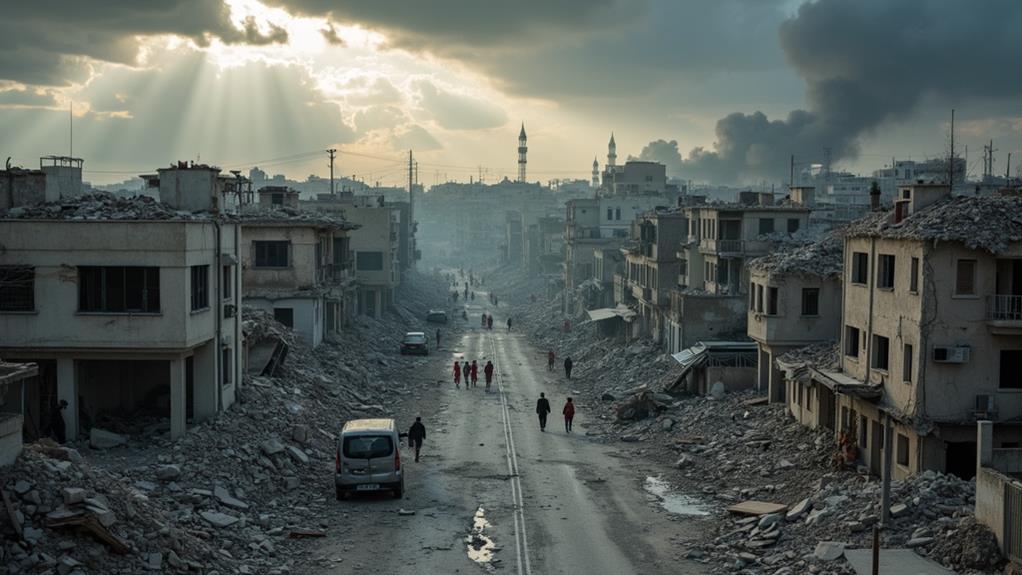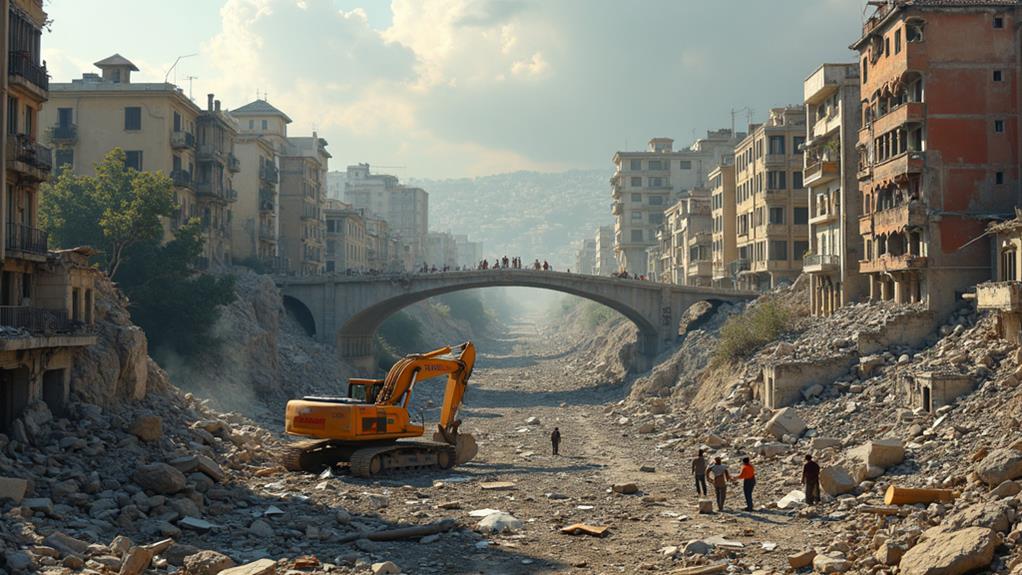2023 Turkey–Syria Earthquakes

On February 6, 2023, a devastating 7.8 magnitude earthquake struck Turkey and Syria, causing catastrophic damage and significant loss of life. Over 56,000 people perished, millions were displaced, and vast numbers of homes and apartments were destroyed. Beyond the immediate tragedy, the aftermath has presented immense challenges in economic recovery, infrastructure rebuilding, and providing crucial humanitarian aid. What are the most pressing needs now, and how are both nations coping with the ongoing crisis?
Earthquake Overview

On February 6, 2023, Turkey experienced a devastating 7.8 magnitude earthquake near Gaziantep, accompanied by a powerful 7.5 magnitude aftershock. This disaster was the most catastrophic Türkiye had faced in over two decades. The earthquakes caused immense destruction, leading to at least 56,000 fatalities, though actual numbers are likely higher. Approximately 15.73 million people across 11 provinces in Turkey were affected, and the impact extended into northwest Syria.
An estimated 518,009 houses and over 345,000 apartments were destroyed. In Turkey alone, 230,000 buildings collapsed, with another 10,600 in Syria suffering similar damage. The scale of the disaster precipitated a massive humanitarian crisis. Health services were strained as search and rescue teams worked tirelessly to find survivors in the rubble of collapsed buildings.
Recovery and reconstruction present significant challenges. Approximately 100 million cubic meters of debris need to be cleared in Turkey. With over 40% of households in the affected areas living below the poverty line, the earthquakes exacerbated pre-existing vulnerabilities, making the path to recovery and reconstruction even more daunting.
Humanitarian Impact
The devastating earthquakes on February 6, 2023, in Turkey and Syria have had a profound humanitarian impact, displacing millions and resulting in at least 56,000 fatalities. In Syria, where over 15 million people already required humanitarian aid, the situation became increasingly dire, exacerbating existing food insecurity issues. Now, 12.9 million people in Syria urgently need food assistance.
In northwest Syria, the disaster rendered 30% of health facilities non-functional, severely limiting access to essential health services. In response, the United Nations launched a Flash Appeal, seeking $397.6 million to assist 4.9 million Syrians. These funds are critical for ongoing recovery efforts, which are expected to span 3-4 years.
The immediate need for humanitarian aid in both Turkey and Syria is immense. Displaced individuals require shelter, basic necessities, and psychosocial support to cope with the trauma. Coordinated international assistance is crucial for providing food aid, restoring health services, and supporting those who have lost everything.
Economic and Infrastructure Damage

In the aftermath of the February 2023 earthquakes, Turkey is grappling with an estimated $34.2 billion in direct damages. Reconstruction costs are expected to be even higher. The economic toll is severe, with around 230,000 buildings damaged, leaving many families homeless and numerous businesses devastated. In Syria, physical damages are estimated at $3.7 billion, compounding the challenges faced by an already fragile infrastructure.
The economic impact reaches beyond structural damages. Turkey's agricultural sector, vital for both domestic needs and exports, has incurred losses estimated at $6.7 billion. This represents over 20% of the nation's total agricultural output, worsening food insecurity in the affected areas. The poverty rate has surged, with 40% of households now living below the poverty line, intensifying the need for humanitarian aid.
Reconstruction efforts will be substantial, requiring significant resources to rebuild infrastructure and restore livelihoods. The earthquake response must focus not only on immediate relief but also on long-term recovery to address extensive infrastructure damage. Given the widespread physical and economic losses, the road to recovery will be prolonged and challenging for both Turkey and Syria.
Aid and Recovery Efforts
Mobilizing global support has been crucial in addressing the extensive needs following the February 2023 earthquakes in Turkey and Syria. International aid efforts have played a vital role in the recovery process. For instance, the UN launched a Flash Appeal to assist 4.9 million people in Syria with $397.6 million and 5.2 million people in Turkey with a $1 billion appeal. By April 2024, funding levels had reached 56.3%.
Over 141,000 personnel from 94 countries have provided emergency relief, including food, medical supplies, and shelter. This large-scale humanitarian assistance has been indispensable in aiding the displaced populations.
Key points include:
- Financial Support: The World Bank announced $1.78 billion for Turkey's relief and recovery, while the U.S. pledged $185 million through USAID.
- Rubble Clearance: UNDP estimates that 210 million tonnes of rubble need clearing in Turkey, equivalent to debris covering 14,000 soccer fields one meter high.
- Food Assistance: Nearly 1.7 million people received food aid from the UN World Food Programme, which seeks an additional $46 million.
- Global Participation: The involvement of 141,000 personnel from 94 countries underscores the scale of international support.
Your continued support is essential for ongoing recovery initiatives and humanitarian assistance in both Turkey and Syria.
Shelter and Health Needs
Over a million people are facing homelessness in Turkey following the destruction of homes and apartments due to recent earthquakes. Approximately 1.5 million individuals have been displaced, with 518,009 houses and over 345,000 apartments demolished. Safe shelter is now a primary need, and the construction of 500,000 new housing units is essential to accommodate those affected.
In Syria, the situation is equally dire. Around 30% of the 601 health facilities are non-functional, exacerbating the healthcare crisis. Access to mental health services is severely limited, and psychological trauma among survivors is expected to increase. Multi-purpose cash assistance is crucial in northwest Syria to help families meet their basic shelter and health needs.
Here's a summary of the urgent needs:
| Need | Turkey | Syria |
|---|---|---|
| Shelter | 1.5 million displaced, 500,000 units needed | Displaced families in critical need |
| Health | Urgent health and mental health support needed | 30% of health facilities non-functional |
| Mental Health | Psychological trauma prevalent | Limited access to services |
| Assistance | Immediate shelter and health support | Multi-purpose cash assistance needed |
| Construction | 500,000 new units required | Repairs and rebuilding necessary |
Addressing these needs is imperative to mitigate the crisis and support the affected populations.



